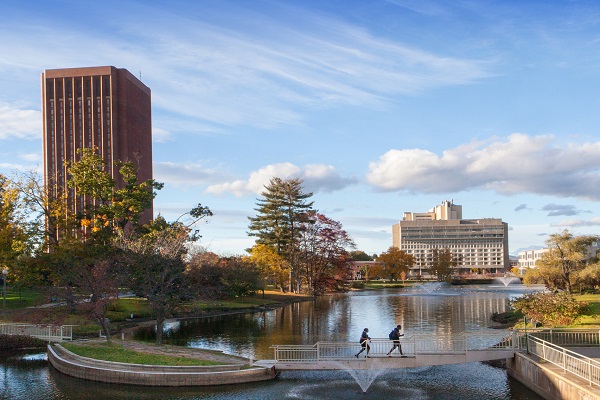University of Massachusetts Amherst: Researchers Receive Grant to Expand Their Mental Health Intervention Program for Refugees
UMass Amherst researchers have been awarded a grant from Blue Cross Blue Shield of Massachusetts Foundation to replicate a refugee well-being program for displaced people from Ukraine and Afghanistan who have recently resettled in Hampden County.
In collaboration with the Ascentria Care Alliance, Kalpana Poudel-Tandukar, associate professor in the Elaine Marieb College of Nursing, and Krishna C. Poudel, associate professor of community health education in the School of Public Health and Health Sciences and director of the Institute for Global Health, will roll out with these two refugee populations the social and emotional well-being intervention program they developed and tested in the Bhutanese community of Western Massachusetts. Ascentria Care Alliance offers community-based programs for refugees and immigrants in Massachusetts among other services throughout New England.
“We are excited about this opportunity to work with refugees from different cultural backgrounds,” says Poudel-Tandukar, who received a 2022 Distinguished Community Engagement Award in Research from the Provost’s Office for her work creating the culturally tailored mental health program for Bhutanese refugees.
The intervention is designed to reduce mental health disparities among vulnerable populations – in this case, the 1,500 or so Ukrainian and Afghan refugees in Massachusetts. Nationwide, some 50,000 refugees from Ukraine and Afghani were attempting to build new lives in the U.S as of 2019. An additional 70,000 Ukrainian refugees have arrived in the U.S. in 2022 since the invasion by the Soviet Union.
“Refugees bear disproportionately high mental health problems due to exposure to violence, family separation and exile but underutilize mental health services,” the researchers state in their grant proposal. “In this post-pandemic era, a culturally tailored intervention that addresses psycho-sociocultural stressors, cultural adaptation and ongoing psychosocial difficulties holds the most promise.”
“Using lessons from global health, we plan to reach our target populations where they are instead of targeting them at health institutions,” says Poudel.
Together with the Ascentria Care Alliance, the husband-wife research team will train individuals on techniques for reducing stress, solving problems, improving communication skills and social networking, and planning ways to make their families healthy. They will also provide opportunities for the project participants to learn and practice mind-body exercises. The low-cost intervention provides culturally tailored coping tools and promotes confidence for thriving in a new country.
The project is funded by a grant from the Blue Cross Blue Shield of Massachusetts Foundation. Created in 2001, the mission of the Blue Cross Blue Shield of Massachusetts Foundation is to ensure equitable access to health care, for all those in the Commonwealth who are economically, racially, culturally or socially marginalized, through grantmaking and policy initiatives.

